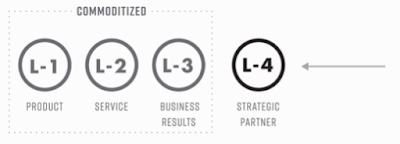À superfície vemos uma coisa, e tomamos decisões e construímos narrativas e visões do mundo com base nesse agregado fácil de contemplar para quem tem pressa ou preguiça de pensar.
No entanto, quando se mergulha e se vai à análise granular, quando se desdobra o agregado, percebemos que há uma turbulência subjacente permanente.
Recordei-me do índice de turbulência a propósito de um texto do Banco de Portugal sobre o sector do calçado. O texto é de Julho de 2018, ainda que trate de dados até 2016, "
Análise setorial da indústria do calçado 2012-2016", e o que me chamou a atenção foi este gráfico:
Com a evolução da taxa de mortalidade e de natalidade no calçado.
Quando olhamos para as Monografias Estatísticas da APICCAPS sobre o sector e olhamos para a evolução do número de empresas:
Normalmente escápanos a percepção de que apesar do número total não ter tido grande evolução nos últimos anos, por trás dessa estabilidade há turbulência.
A curiosidade levou-me a olhar para alguns números dos Boletins de Conjuntura (Trimestrais) da APICCAPS (desde o 1º trimestre de 2015 até ao 2º trimestre de 2018). Eis alguns dados apresentados de duas formas:
Interessante notar que ao mesmo tempo em que cresce o número dos que afirmam que a utilização da capacidade diminui, aumentam os preços no estrangeiro.
Interessante notar que o número de empresas que contratam e despedem aumentou.
Interessante notar que o número de empresas que refere crescimento ou diminuição da carteira de encomendas do estrangeiro parece ter aumentado.
Cuidado com os que vêem os sectores como
blocos homogéneos e não percebem o como a idiossincrasia desempenha um papel fundamental.
Nestes tempos de hoje estão a criar-se as causas que gerarão os efeitos de 2020:






_-_Google_Art_Project_-_edited.jpg/1280px-Pieter_Bruegel_the_Elder_-_The_Tower_of_Babel_(Vienna)_-_Google_Art_Project_-_edited.jpg)


























